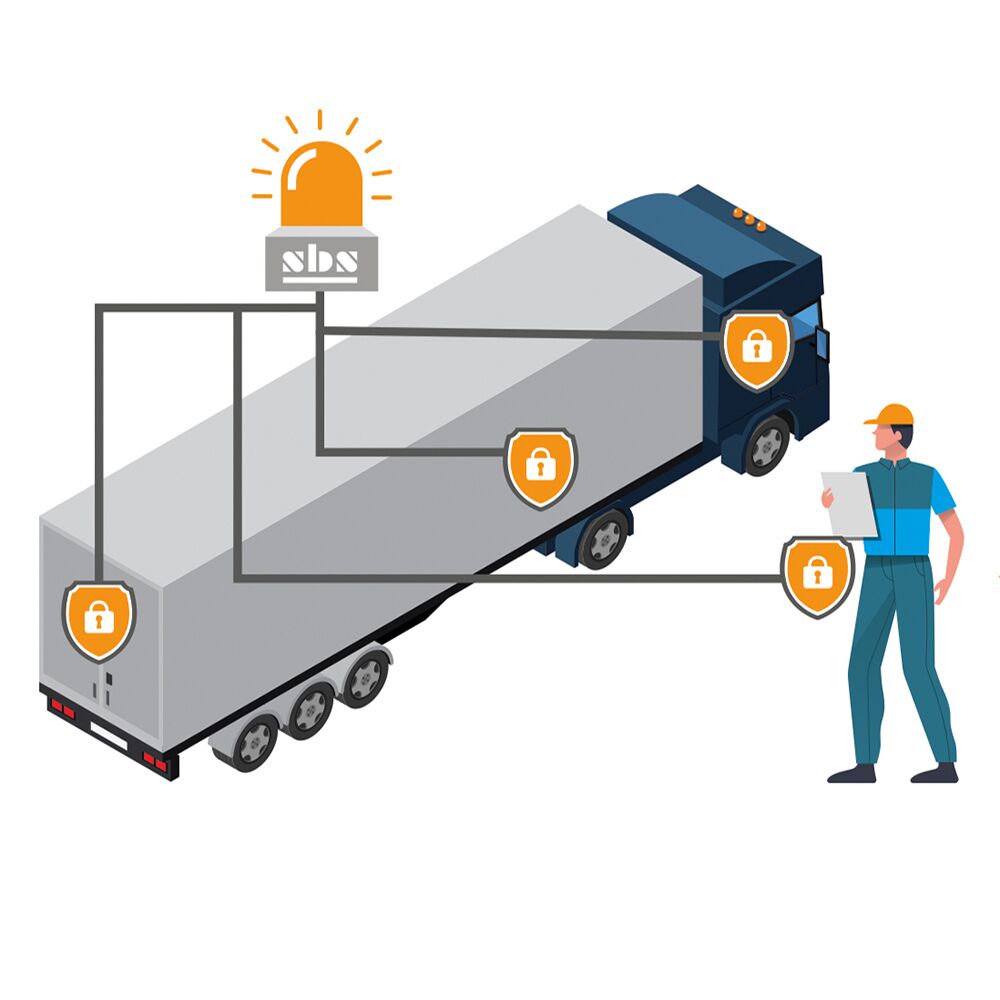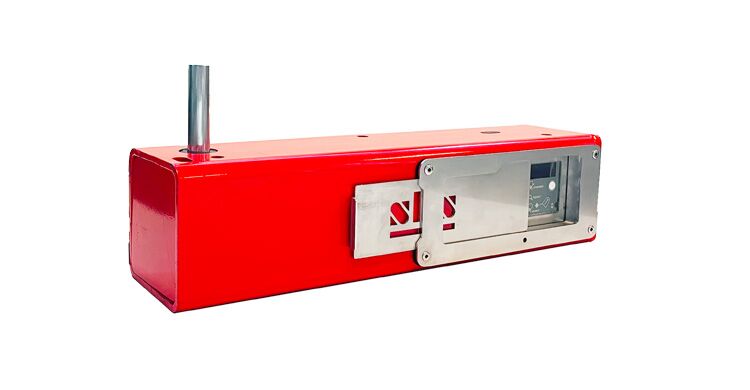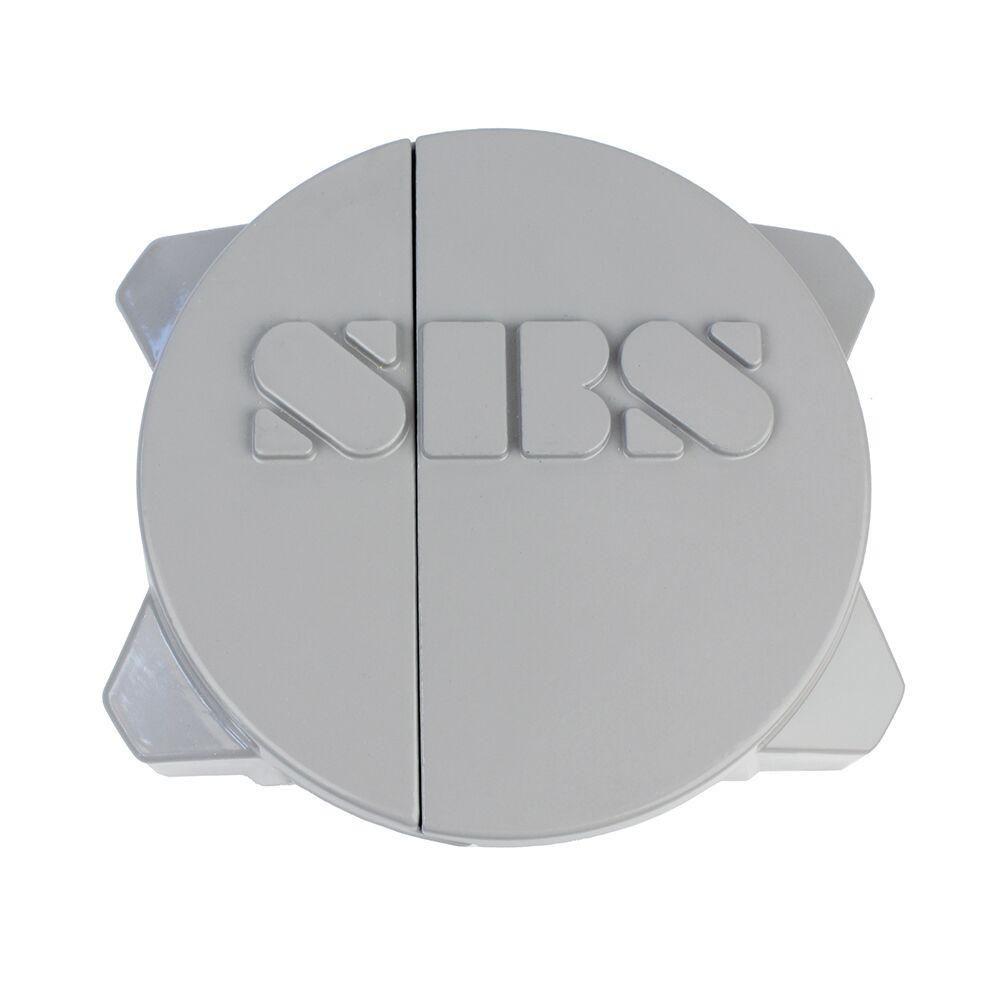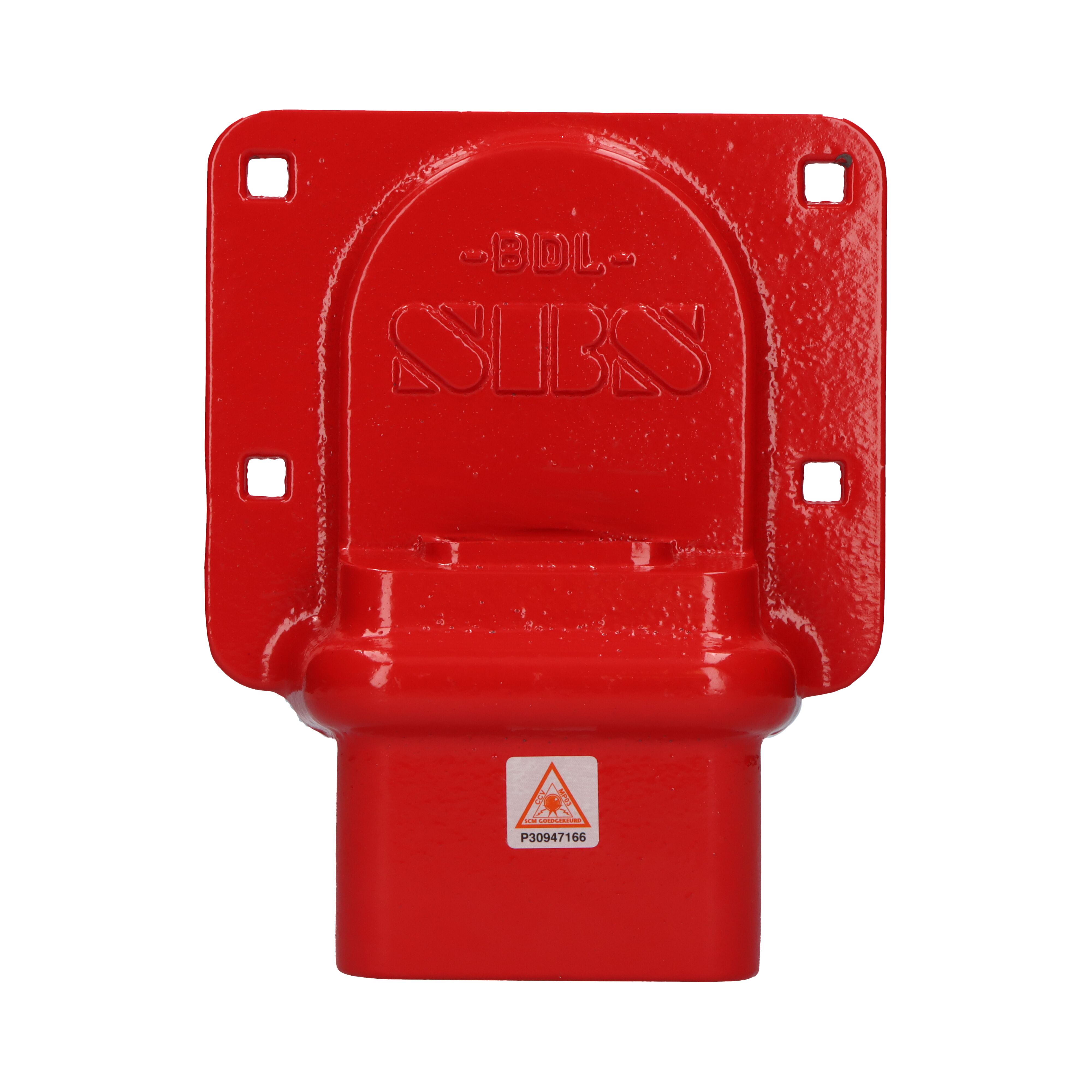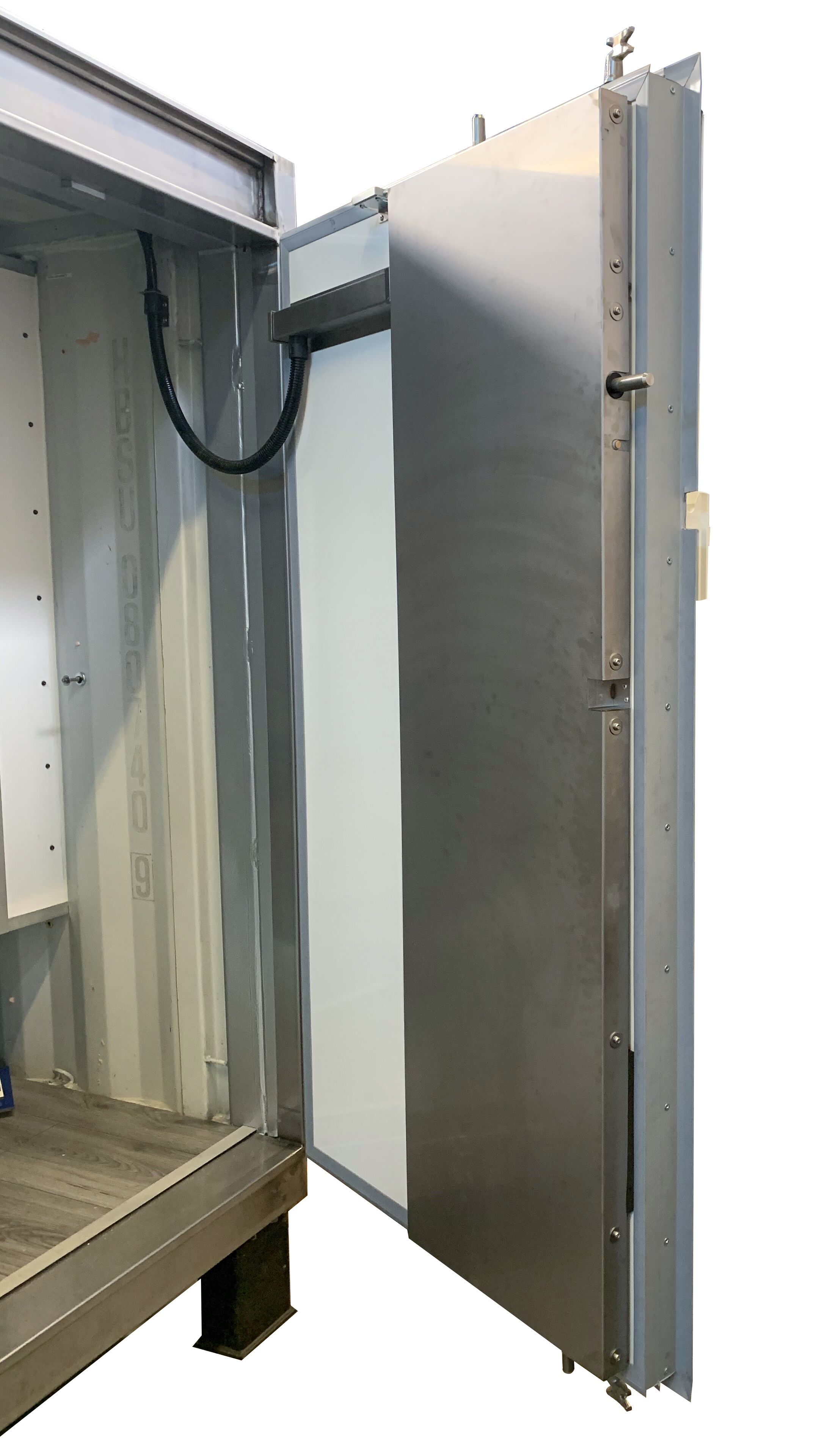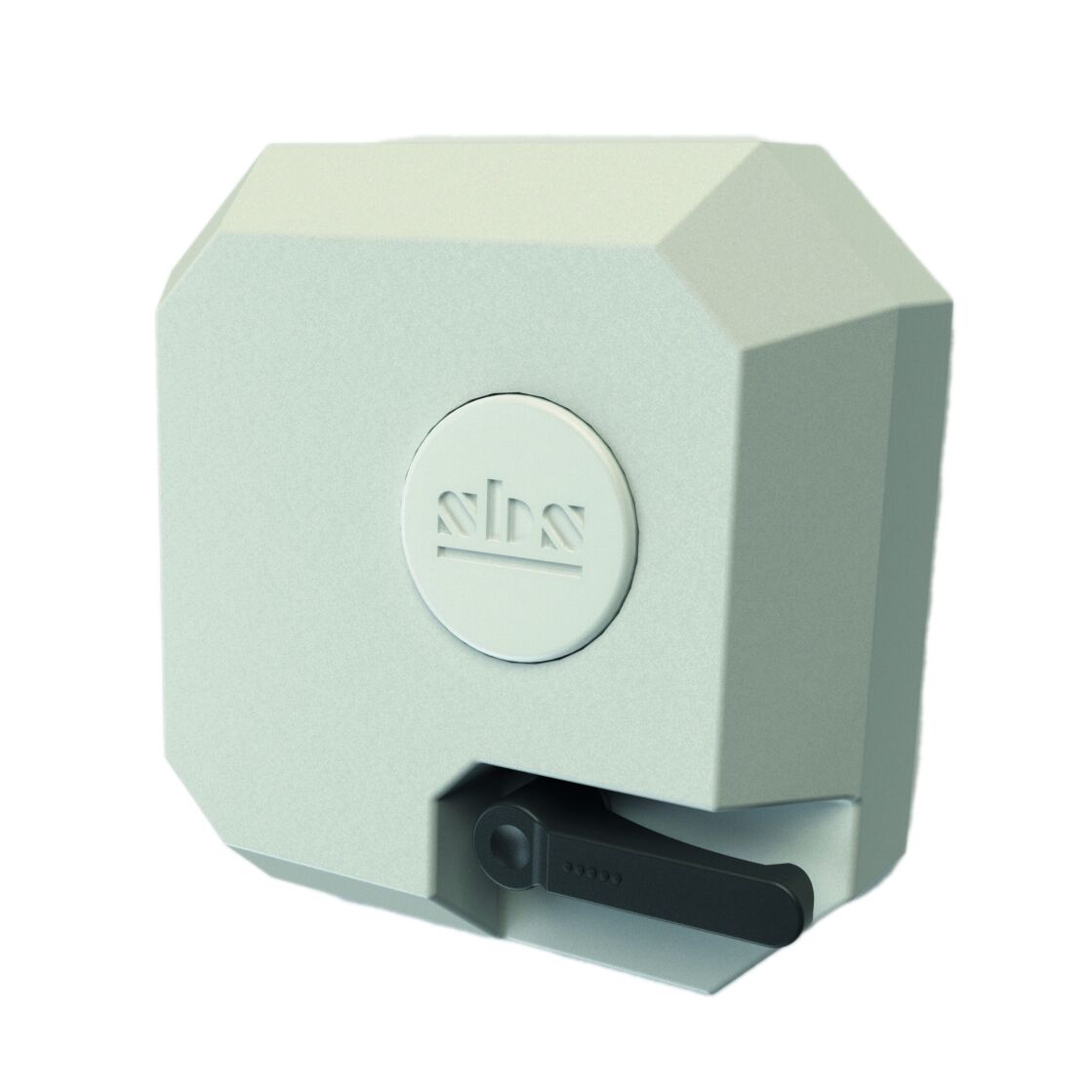What is a TAPA certification?
Cargo theft and loss of high-value goods is increasingly common. As a result, transport requirements are becoming stricter. More and more shippers are asking for TAPA certification. But what exactly is a TAPA certification? What are the requirements for a TAPA certificate? And what are the benefits of a TAPA TSR certification? On this page, we answer these questions.
TAPA helps prevent cargo theft
TAPA stands for Transported Asset Protection Association, a non-profit organisation that helps prevent cargo theft by improving transport security. It does this by working with members from the transport and logistics sector to set security requirements for the supply chain, provide training and certify transporters according to the TAPA standard. TAPA certification shows that you have done everything possible to secure your cargo during transport. A TAPA certification ensures demonstrable quality. Would you also like to be TAPA certified? Our vehicle security specialists will be happy to help you.

Which locks are suitable for TAPA TSR certification?
Imbema is a member of TAPA as a service provider.This means that our SBS trailer locks are suitable for a TSR certification. Every 3 years, TAPA reviews security standards with its members. As a result, we as vehicle security specialists are always up to date with the latest requirements and know what our trailer locks must meet. View the trailer locks suitable for TAPA TSR certification below.

Frequently asked questions about TAPA certification
General
The purpose of TAPA certification is to reduce the loss of goods in the transport chain. Cargo theft and loss of high-value and pharmaceutical goods is becoming increasingly common. As a result, the requirements for transporting these types of goods are also becoming increasingly stringent. More and more shippers are therefore asking for a TAPA certificate. With a TAPA certificate, you as a haulier demonstrate that the security of your fleet is in order and that your cargo is preventively protected against cargo theft throughout the supply chain. This allows you to distinguish yourself from other transport companies. TAPA certification ensures demonstrable quality
TAPA provides guidelines on transport security and has three different certifications. TAPA FSR certification - Facility Security Requirements (A, B or C) The official standard for the storage of high value goods. It also defines which requirements a logistics service provider must meet to be certified. TAPA TSR certification - Trucking Security Requirements (1, 2 or 3) The official standard for secure road transport of high value goods. It also defines the requirements transport companies need to meet to be certified. TAPA PSR certification - parking security requirements (1, 2 or 3) The official standard for safe and secure parking areas for trucks transporting high-value goods. It also defines the requirements that car park operators must meet to obtain certification. Every year, TAPA organises 20 training courses in the EMEA region for members wishing to become certified. A TAPA certificate is valid for 3 years. After that, you have to recertify.
A TAPA audit is an independent assessment on a company's transport security. During the audit, the company's security procedures and measures are reviewed and evaluated to determine whether they meet TAPA's high security standards. The purpose of a TAPA audit is to determine a company's suitability for TAPA certification. The audit takes place at the company's sites. Besides a security check of the vehicles, the audit also consists of a document review and interviews with employees. At the end of the audit, the company receives a report with the results and recommendations for improvement. If the company meets TAPA's requirements, it can be certified. After that, the company may call itself TAPA-certified.
TSR
The trucking security requirements state for each level what requirements you need to meet to obtain a TAPA TSR certificate. We list the most important TSR requirements for you: Locks For TSR 1 and 2 certification, the following applies: A. Electronic locks, automatically or manually operated B. Unique locks (duplicate codes/keys/passwords to open different locks are not allowed) C. Locks and fasteners must be able to withstand great force and cannot be manipulated. For TSR 3, you may decide which locks you use to secure the doors, as long as you document it in your internal procedure. Tracking and tracing There are different network requirements for TSR 1 (3, 4 or 5G + SMS/GPRS) and TSR 2 (3G + SMS/GPRS). With TSR 1, there may be a maximum of 5 minutes between 2 reports (from truck and trailer) and with TSR 2 it is 30 minutes. In TSR 3, the data from the track and trace device may be logged and read out later. Alarms For TSR 1 (2020), a loud alarm is mandatory if the cargo space of your truck or trailer is opened unauthorised. For TSR 2 and 3, this is not required.
A TAPA TSR certification is the official standard for safe road transport of high value goods. A TSR certification has 3 levels with increasingly stringent requirements. TSR 1 = Elevated Security Protection TSR 2 = Moderate Security Protection TSR 3 = Basic Security Protection TAPA redefines these requirements every 3 years. The trucking security requirements state for each level what you must meet to obtain the TSR certificate. We will send you these requirements on request. You can also follow a training course. Every year, TAPA organises 20 training courses for members who want to become certified. If you meet the guidelines, you will receive a TAPA certificate and may call yourself TAPA-certified. A certificate is valid for 3 years. After that, you have to recertify.
In July 2020, TAPA introduced the new TSR 2020 standard. You can read exactly what this means in the TSR 2020 security requirements for trucks. This means that when your TSR 2017 certification expires, you will have to meet the new Tapa TSR 2020 security requirements when re-certifying. We have listed the differences between the TSR 2017 and TSR 2020 requirements for you, so you can go into the re-certification well prepared.
Export products increasingly go in containers towards seaports and rail terminals, after which they are further transported by boat or train. To meet the specific needs of intermodal transport, an additional module sea containers (C-TSR) or multimodal (M-TSR) has been added to the TSR certification.
Is your question not listed here? Ask it via the contact form. Our vehicle security specialists will be happy to answer it.

